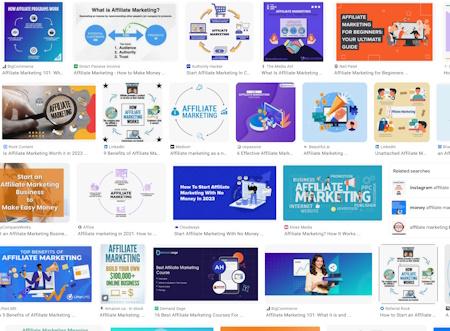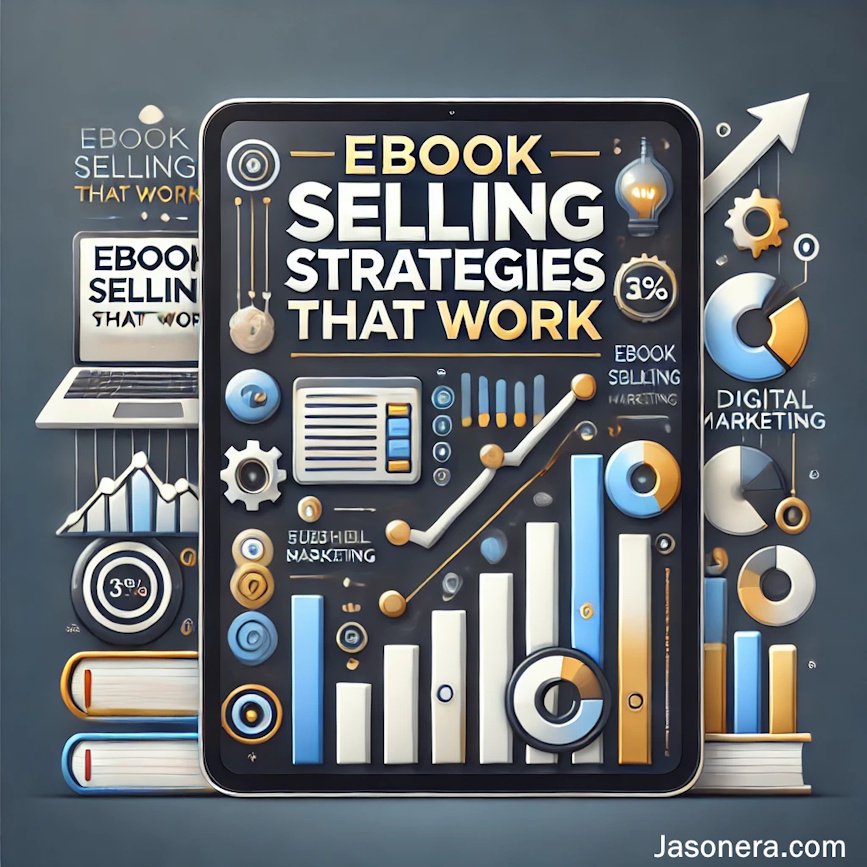2. Building And Selling Digital Products
Finding The Best Affiliate Programs To Sell. Part 1.

Make $10,000 in 30 days with affiliate programs!…Best Converting Product Ever…Clickbank Super Affiliate Reveals All…10% Conversion Rate…Number 1 In Clickbank For Years!
Easy pick eh? Just close your eyes and pick a winner. They all sound great don’t they?
Because they are designed to. You are meant to look in awe and wonder. If you didn’t then they wouldn’t be where they are now.
Physiological triggers, pictures and colors are meant to draw you in. There is a full industry specifically targeted to figuring out what works and what doesn’t.
But the unfortunate thing about is that they are designed for you to buy. You can wrap anything in glitzy, fancy marketing speak with enough testimonials to cause a server to crash and it will sell…that is guaranteed.
The problem comes once the product has been bought.
You as an affiliate are hoping the product actually lives up to its standards…it has to right? Just look at the pictures, the people who are praising this product and the fancy text, they couldn’t be lying could they?
The Blair Witch Project was a hyped movie beyond words and cleverly done at that. For an overall budget of $500,000 it grossed $248 million…a great movie for the industry. So you would have thought that Blair Witch 2 would do equally as well right?
The Blair Witch Project 2 grossed $48 million.
Sequels don’t do that well, or do they?
Spiderman 1 (Sam Raimi version) grossed $821 million- a great film but had flaws with the Goblin costume. Spiderman 2 grossed $783 million- a near perfect film but Spiderman takes his mask off too often. But because of the odd first movie then the second one gets “damaged”. Spiderman 3 grossed $890 million because of number 2 actually being a good film and the inclusion of fan fave Venom, it was going to be a hit so you get a larger gross…but the film got panned and then the reboot started.
This is what appears everywhere in every single product. If the first product is actually good then the subsequent products are going to get the same subconscious favour with customers- you only need to give them a gentle nudge for them to buy. Read comments for many marketers who are good in the past- for example Jeff Johnson. His visitors state that they will buy Jeff’s other products because of the quality of the former- regardless of them actually seeing the new product (they also buy because everyone else is buying).
But if that first product is poor, or it has stuff already seen and becomes such a chore to achieve then subsequent products will get beaten (check out Disney+). They can recover, but the next product after that one will reap the benefit. Or like in some movies, they do better over time (when released on DVD) and regain their money. This happened most notably with Blade Runner. It just made back its money from theatrical release but most of its money there on came from DVD sales.
This happens a lot. Fight Club, the film so well regarded, was actually a flop at the box office. It is not until people actually saw it and passed the message on did it make it. Other flops include The Big Lebowski and Citizen Kane.

Are we in control when we try and sell an affiliate program?

What many vendors fail to realize is that the customer is in control. They may get stung once but they tend to remember something that is shoddy or rehashed. So when something else is released from the same vendor it has little impact.
But we are not product owners right?
Actually we are in an indirect way. Affiliates are using their name against a product and it is that name that generates the cash. You can BS as much as you want and say “I recommend this product” but that is simply meaningless.
In the competitive affiliate world everyone is using “recommended”, everyone is using “is product X a scam?” and everyone is using “my product x review”. Do you know why? Because they have no idea what the product is about…and why it is so tiring to create a website each and every time a new product pops up.
That is not what affiliate business models are about. They are designed to build trust and relationships so that you can promote products again and again. NOT to build a fresh and new business again and again for every single related product that you come into contact with.
Affiliate marketing (no this isn’t and affiliate marketing book, but there is a fundamental basic rule that determines product selection) was not born online, it was not Amazon’s…it was a direct marketing, offline technique and has been around for years. What Amazon did was to take offline tactics that work and transport them online and made the process more welknown. Technically every store that offers someone else’s product is actually a partner with that vendor.
Walmart is a great affiliate business because they are selling other peoples products and getting a percentage of those sales. Walmart has grown to be so potent that vendors pay Walmart to be on their shelves. The selection process demands that vendors know everything about their stock- their homework needs to be top notch. Walmart selects products so effectively and efficiently that people trust their brand- for cheap and quality goods. But they have to. They have to be ruthless, they have to get product selection right because it is their business. Too many poor products and the structure collapses.
When people “shop around” it is because the product is not up to the possible perceived same quality as someone else’s. They tried it, didn’t like it and moved on. Or they can find the same quality for less money. Or they can find better quality for a little bit more money. So if you sell something for $10 and then have a backend sale of $100 that is a big price jump. Sure, some people will buy that product. But if you offer “bridging” products that are around $25 and $50 that $100 doesn’t seem that bad, especially if you are buying the $50. What is an odd occurrence is that more people now will buy the $100 product because they don’t want to believe they are missing out on something. Price also affects much higher priced products. If you buy a car for $10k then offering $200 in upgrades doesn’t seem a lot of money in the bigger scheme of things
Do we just pick the best affiliate programs to sell? Or should we look a little bit deeper?

Online, we tend to play around at “business”. We trust the affiliate directory sites for the information about the products that we want to promote. We pick the best products by picking the ones with the greatest Gravity, or even the ones that have the most green blocks right?
Jump onto Youtube and read many marketers websites and you will find that these are the most common factors that you should look for…it’s a make or break situation. Go on check them out. Youtube is full of videos that explain Gravity and other Clickbank stats which they believe is “essential” to finding the best product.
Then you have the common “10 points to find before you buy a product”. Some have been linked to and are deemed “reliable” and because they are written by anonymous sources they get praised for being an amazing resource. They list price, the amount of affiliates that the product has and the amount of product that is actually selling as being major “selection factors”.
I found this in one forum on how to find a product to sell:
- Find a product that you want to review
- Find a few websites that has already reviewed it
- Take something from each website, add your content, some of your opinions and that's it
So basically just BS all your website copy because that is what I have taken from point 3. And how about if all the websites state that it is a fabulous product because they are affiliates trying to sell it?
How about this one: “Go to any category, and choose anything on the first page, those are all the best sellers.”
Wrong.
Others state “choose a hot product!”
A publishing house hired a consultant to advise them how to make more money. The consultant stated that the publisher should choose more best sellers. Ermm…right. ‘Tis not the point. You can not choose a hot product unless you know the product industry. And general rule of thumb, if you choose a hot product, it is already hot and shouldn’t be touched because you will get burnt.
Here is another completely true example from a well known book/ author. None of the bullet points have been edited:
- “The products you choose must be excellent”
- “10-15 programs is a good balance”
- “Focus on a smaller amount of products”
Also the amount of programs is either a lot or too few. It depends, it really does. If you are a “shop front” then you probably are going to have more than 10 products. Content websites can diversify from 1-10 products or they can stick to 1 product and really go full in.
But do you know what?
By picking a random product to sell you are going to get random results.
About. Updates. Disclaimer. Privacy. Mission/ Vision. FAQ. Newsletter.
Copyright © 2024- Jasonera.com All rights reserved







